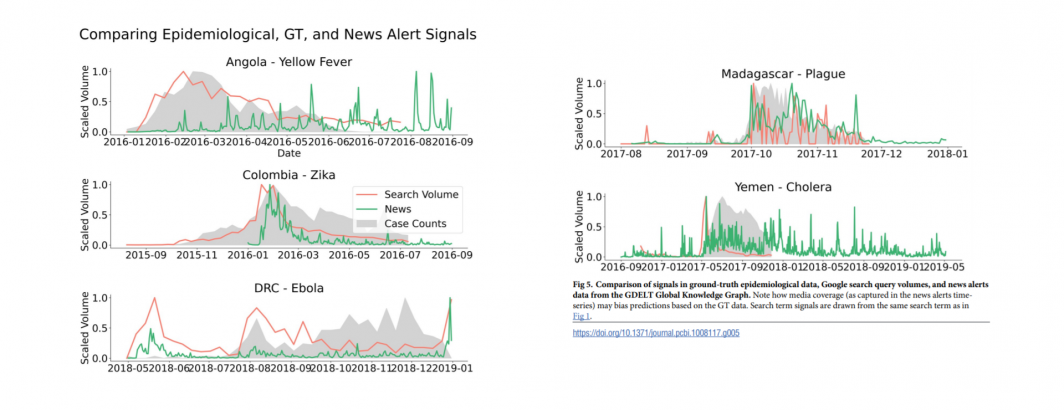
This fascinating analysis uses the GKG as a signal for realtime alerting of emerging disease outbreaks.
Understanding the behavior of emerging disease outbreaks in, or ahead of, real-time could help healthcare officials better design interventions to mitigate impacts on affected populations. Most healthcare-based disease surveillance systems, however, have significant inherent reporting delays due to data collection, aggregation, and distribution processes. Recent work has shown that machine learning methods leveraging a combination of traditionally collected epidemiological information and novel Internet-based data sources, such as disease-related Internet search activity, can produce meaningful “nowcasts” of disease incidence ahead of healthcare-based estimates, with most successful case studies focusing on endemic and seasonal diseases such as influenza and dengue. Here, we apply similar computational methods to emerging outbreaks in geographic regions where no historical presence of the disease of interest has been observed. By combining limited available historical epidemiological data available with disease-related Internet search activity, we retrospectively estimate disease activity in five recent outbreaks weeks ahead of traditional surveillance methods. We find that the proposed computational methods frequently provide useful real-time incidence estimates that can help fill temporal data gaps resulting from surveillance reporting delays. However, the proposed methods are limited by issues of sample bias and skew in search query volumes, perhaps as a result of media coverage.